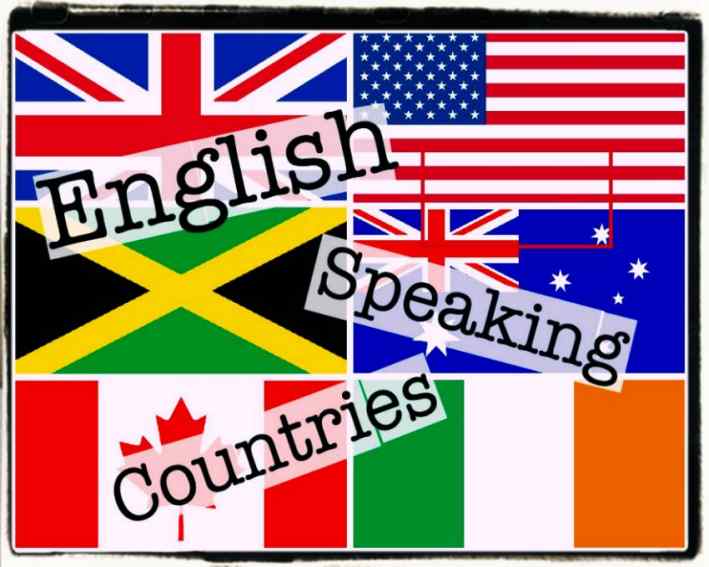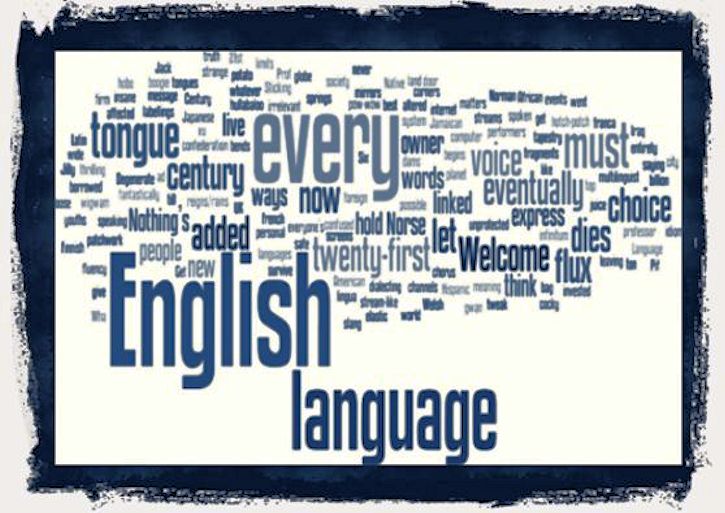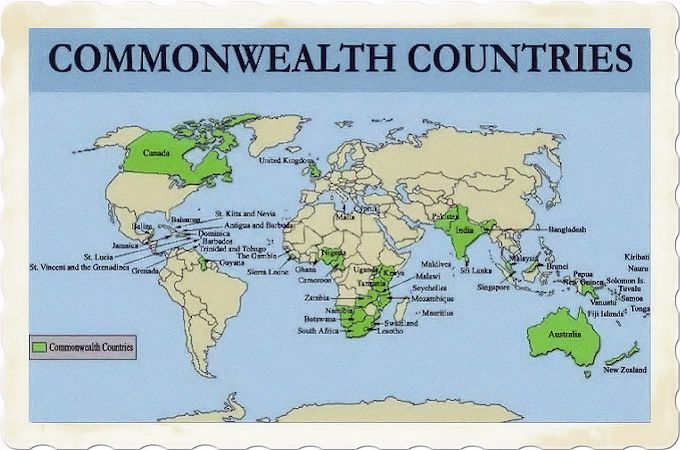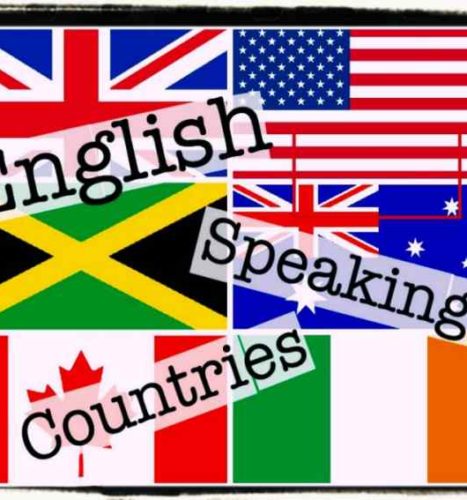
The World of English Language, a world language, the lingua franca of the modern era, with a brief chronology of the History of English and its expansion
We all live in a small unique world, that’s why we need at least one sole common language.
Carl william Brown
The end of all our exploring will be to arrive where we started and know the place for the first time.
T.S. Eliot
We recognize that the language of he mother-country now encircles the globe; that the literature of each of its branches is the common possession of all.
Noah Porter Webster’s International Dictionary 1890
“World English has been defined as a phase in the history of the English language. This phase has witnessed the transformation of English from the mother tongue of a handful of nations to a language being used by far more speakers in non-mother tongue settings. The changes that have accompanied this spread – the multiplicity of varieties – result not from the faulty and imperfect learning of the non-mother tongue speakers, but from the nature of the process of microacquisition, language spread and change.”
Janina Brutt-Griffler
We all speak English, or at least we try!
Because English is so widely spoken, it has often been referred to as a “world language,” the lingua franca of the modern era. While English is not an official language in most countries, it is currently the language most often taught as a second language around the world. Some linguists believe that it is no longer the exclusive cultural sign of “native English speakers”, but is rather a language that is absorbing aspects of cultures worldwide as it continues to grow. It is, by international treaty, the official language for aerial and maritime communications. It is an official language of the United Nations and many other international organizations, including the International Olympic Committee.
The English language is now spoken in more than 100 countries. Varieties of World English include American English, Australian English, Babu English, Banglish, British English, Canadian English, Caribbean English, Chicano English, Chinese English, Denglish (Denglisch), Euro-English, Hinglish, Indian English, Irish English, Japanese English, New Zealand English, Nigerian English, Philippine English, Scottish English, Singapore English, South African English, Spanglish, Taglish, Welsh English, West African Pidgin English, and Zimbabwean English.
Modern English, sometimes described as the first global lingua franca, is also the dominant international language in communications, science, business, aviation, entertainment, radio and diplomacy. Some years ago for istance, a decision of the Dutch government shocked the other European countries: in Dutch universities some courses may be given in English instead of Dutch. In fact, most courses in information technology, medicine, engineering, economics and so on include a lot of English terminology in every other language of the world. The term World English (or World Englishes) therefore refers to the English language as it is variously used throughout the world. It’s also known as international English and global English.
English is the language most often studied as a foreign language in the European Union (by 89% of schoolchildren), followed by French (32%), German (18%), and Spanish (8%).
In the EU, a large fraction of the population reports being able to converse to some extent in English. Among non-English speaking countries, a large percentage of the population claimed to be able to converse in English in the Netherlands (87%), Sweden (85%), Denmark (83%), Luxembourg (66%), Finland (60%), Slovenia (56%), Austria (53%), Belgium (52%), and Germany (51%). Norway and Iceland also have a large majority of competent English-speakers. Books, magazines, and newspapers written in English are
available in many countries around the world. English is also the most commonly used language in the sciences. In 1997, the Science Citation Index reported that 95% of its articles were written in English, even though only half of them came from authors in English-speaking countries…

But the geographical spread of the English speaking world cannot entirely account for English being the “lingua franca” of the modern world. The industrial and technological achievements, mainly of Britain and the United States, has made English the international language of many different fields, like: International air traffic control; Sea navigation (morse code between ships); The complex jargon of computers and space technology; International scientific, business and financial world conferences; Advertising and marketing is another field which is largely dominated by the English language.
What’s more through the American negroes, English became the language of jazz. English continues as the language of pop music throughout the world not only from British and American pop stars but as the chosen language of the Swedish group Abba and the Spanish group Baccara, and no doubt many others in other countries. The British enthusiasm for competitive sport has given the world soccer football, rugby football, golf, tennis, cricket, squash, boxing, competitive swimming, rowing, modern horse racing and even ping gong. To this list, the Americans have added volley ball, basketball and baseball. It is hardly surprising that English is the international language of sport, and words like “corner”, “penalty”, “goal”, “K. O.” and smash” are familiar in every language.
Anyway, as a matter of fact, more than 50 countries officially list English as an official language, and nowadays there are about 1.27 billion English speakers around the world. This makes it the most spoken language, ahead of Mandarin Chinese (1.12 billion speakers) and Hindi (637 million speakers).
A brief chronology of English
BC 55 – Roman invasion of Britain by Julius Caesar. Local inhabitants speak Celtish
BC 43 – Roman invasion and occupation. Beginning of Roman rule of Britain.
436 – Roman withdrawal from Britain complete.
449 – Settlement of Britain by Germanic invaders begins
450-480 – Earliest known Old English inscriptions. Old English
1066 – William the Conqueror, Duke of Normandy, invades and conquers England.
c1150 – Earliest surviving manuscripts in Middle English. Middle English
1348 – English replaces Latin as the language of instruction in most schools.
1362 – English replaces French as the language of law. English is used in Parliament for the first time.
c1388 – Chaucer starts writing The Canterbury Tales.
c1400 – The Great Vowel Shift begins.
1476 – William Caxton establishes the first English printing press. Early Modern English
1564 – Shakespeare is born.
1604 – Table Alphabeticall, the first English dictionary, is published.
1607 – The first permanent English settlement in the New World (Jamestown) is established.
1616 – Shakespeare dies.
1623 – Shakespeare’s First Folio is published
1702 – The first daily English-language newspaper, The Daily Courant, is published in London.
1755 – Samuel Johnson publishes his English dictionary.
1776 – Thomas Jefferson writes the American Declaration of Independence.
1782 – Britain abandons its American colonies.
1828 – Webster publishes his American English dictionary. Late Modern English
1922 – The British Broadcasting Corporation is founded.
1928 – The Oxford English Dictionary is published.

The expansion of English in Britain, North America, Africa and Australasia
c.550 – English in Lowland Scotland (Britain)
1066 – Norman invasion of England; some English flee to Scotland (Britain)
1169 – Norman settlement in south-east Ireland (Britain)
1172 – The English king becomes Lord of Ireland (Britain)
1301 – First Prince of Wales (Britain)
1497 – Cabot reaches Newfoundland (North America)
1536 – Act of Union with Wales (1542) (Britain)
1553 – Trade with West Africa (Africa)
1584 – Roanoke settlement (North America)
1607 – Plantations of Jamestown Ulster settlement (Britain)
1611 – King James version of the Bible published (Britain)
1620 – Plymouth settlement (North America)
1642 – Tasman discovers Tasmania and New Zealand (Australasia)
1650 – Cromwellian settlements in Ireland (Britain)
1707 – Act of Union with Scotland (Britain)
1745 – Highland Clearances (Britain)
1763 – Canada ceded to the British (North America)
1769 – Cook circumnavigates New Zealand (Australasia)
1770 – Cook claims east Australia for the crown (Australasia)
1776 – Declaration of Independence (North America)
1788 – Period of colonization West Africa (Africa)
1795 – Occupation of the Cape Colony (Africa)
1800 – Act of Union with Ireland (Britain)
1840 – Treaty of Waitangi: settlement of New Zealand (Australasia)
1845 – Potato famine (Britain)
The World of English Language. Articles, texts and summaries.

